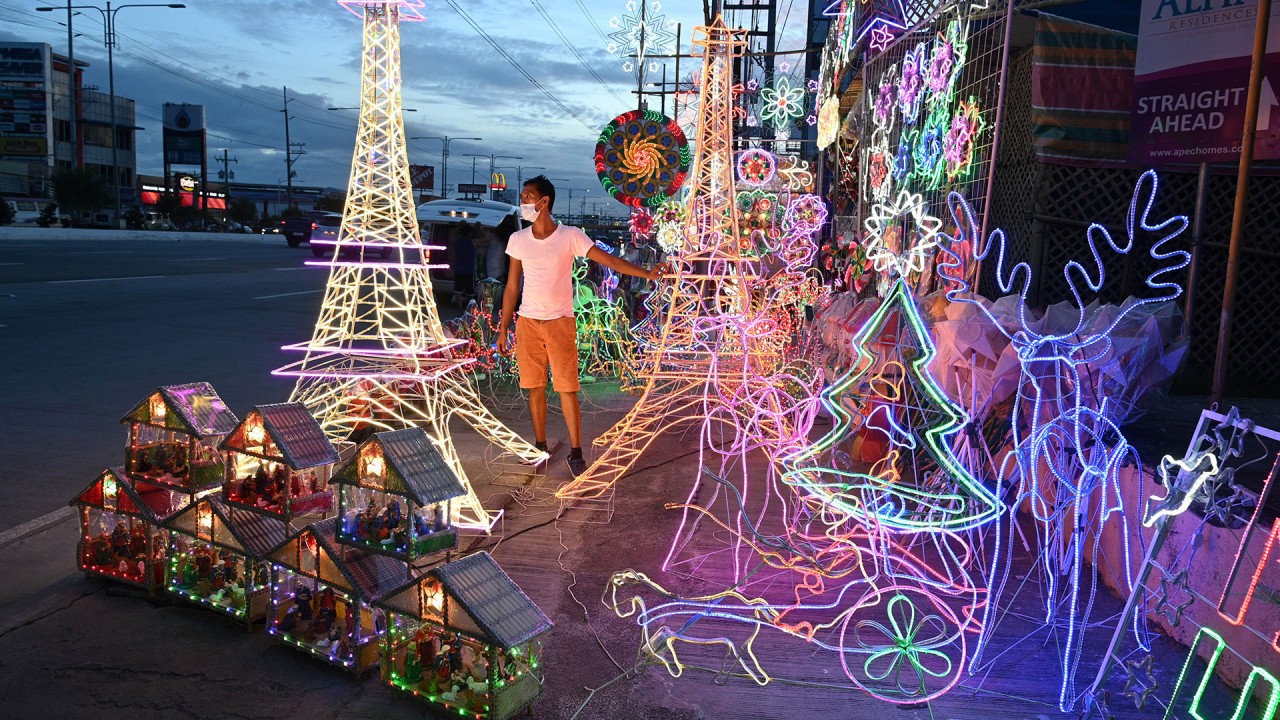
02:04
Philippines celebrates Christmas with decorations, but Covid-19 cancels parties and big gatherings
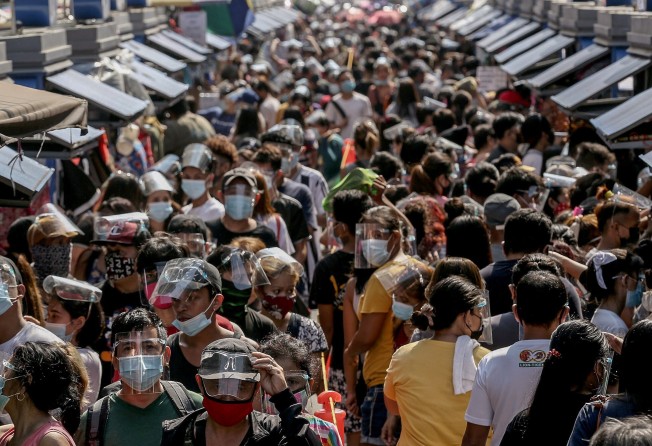
The Philippines will struggle with the coronavirus pandemic for two more years if it does not alter its current strategy to combat the disease and replace the leaders implementing it, according to one of the country’s top medical experts.
Dr Anthony Leachon, a former senior adviser to the country’s anti-Covid National Task Force, told This Week in Asia the government’s efforts this year “could have been led better with a sense of urgency, agility and teamwork”.
Leachon was sacked from his job by President Rodrigo Duterte in July for saying the government was “losing focus” in its efforts to battle the spread of Covid-19 – criticism that has since turned out to be prophetic. As of Thursday, the country has logged 472,532 cases and 9,230 deaths, making it the second-worst-affected country in Southeast Asia.
Under Duterte, the country’s effort against Covid-19 – defined by one of the world’s longest lockdowns – has been marked by delays, uneven enforcement, missteps, bad messaging and poor coordination. To deal with the pandemic, the president set up and continues to create task forces as well as appointing special leaders, whom the press has taken to calling “tsars”, for the likes of treatment, contact tracing and vaccines. Notably, the key positions are held by former military officers, not medical experts.
Officials are trying to get a vaccination programme off the ground sometime next year, while bracing for the arrival of a more infectious variant of the virus. According to Dr Edsel Salvana of the Department of Health Technical Advisory Group, a molecular epidemiologist of infectious diseases, the prospect for the country getting out of the pandemic’s shadow “depends on how fast we can roll out vaccines”, and said a timeline of one year was “optimistic but doable”.

02:04
Philippines celebrates Christmas with decorations, but Covid-19 cancels parties and big gatherings
But Leachon, the former senior adviser, described government efforts as “quite slow, due to a lack of trust and confidence in the health department chief” – the embattled Francisco Duque – which he said had led to “delays in flattening the curve”. Duque has been widely criticised, with the upper chamber of the Philippine Senate earlier this year accusing him of criminal negligence and gross mismanagement of the Covid-19 pandemic and recommending he be fired.
The Philippines’ vaccine procurement tsar, former military chief Carlito Galvez Jnr, has said contracts would be signed in January with Pfizer, Moderna and India-based Novavax for a total of 20 million doses, and that he had already negotiated a separate deal for 25 million doses from Russia’s Gamaleya, with most of the vaccines expected to arrive by the end of 2021.
He made no mention of any ongoing negotiations with China’s Sinopharm, which has become the object of anger on social media over news of the government’s latest stumble: the unauthorised use in September of its vaccine to inoculate the Presidential Security Group (PSG), the 4,000-member unit that protects Duterte.
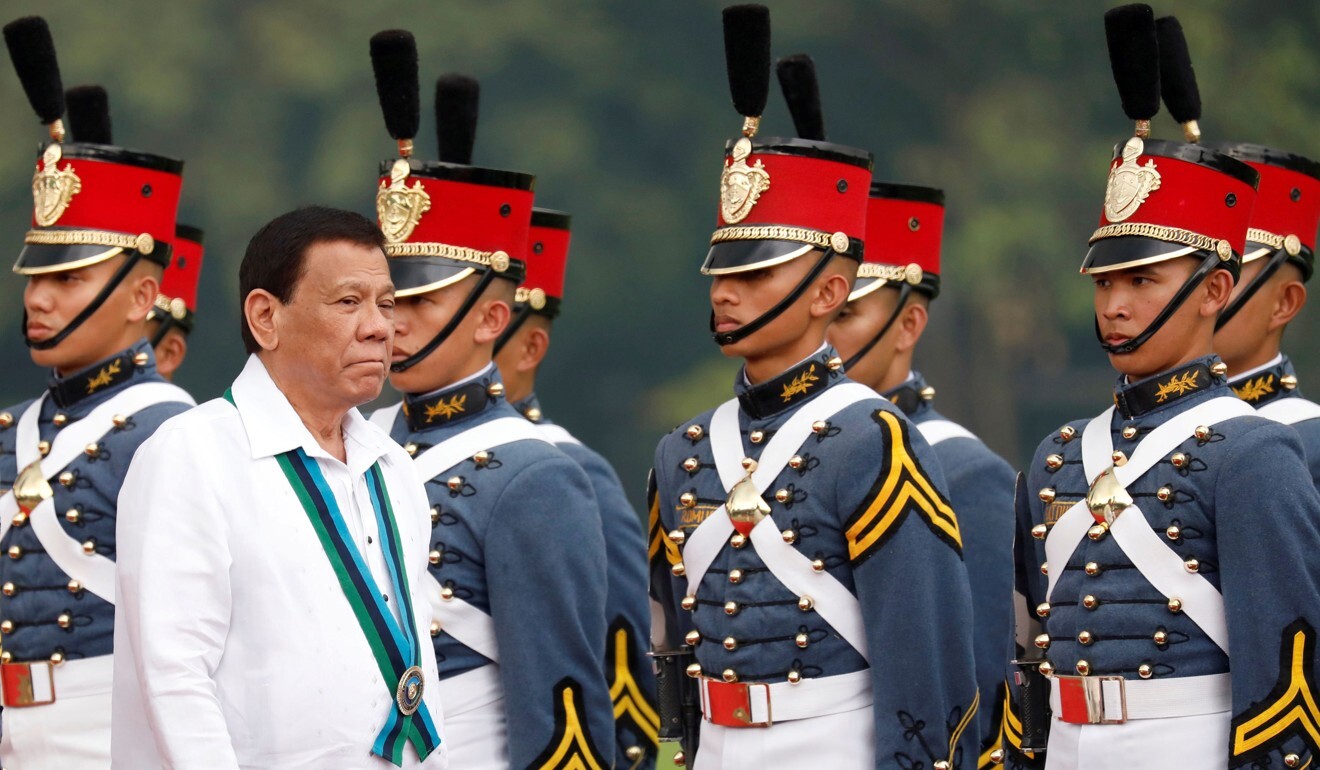
The commander of the group said the PSG had “researched” the vaccine on its own and had somehow acquired doses and inoculated themselves without waiting for any clearance or permission.
Although the act violated as many as three laws – on smuggling, using an unregistered drug, and possibly unethical behaviour by the PSG commander for accepting a “gift” that was not of “nominal value” – Defence Secretary Delfin Lorenza claimed the vaccinations were “justified”, while Duterte ally Senator Sonny Angara called it “an emergency measure”.
Now it is emerging that top government officials, perhaps Duterte himself, may have also gotten inoculations – months before vaccines from China are officially expected to arrive.
Leachon told This Week in Asia that the cause of the vaccine scandal could be traced to “the appointment of a military general instead of a medical person as vaccine tsar” – referring to Galvez.
For critics it was just one more example of how the Duterte government has implemented laws and policies: unevenly, where the rich and powerful freely flout restrictions. Earlier this year, officials looked the other way when powerful politicians and the country’s elite jumped the line to get access to then-scarce Covid-19 tests.
Possibly the most notorious case was that of Debold Sinas, who, while still a police major general in May, was caught in photographs celebrating his birthday at a crowded party that flagrantly violated all social-distancing and quarantine rules. Far from being punished, Sinas was promoted by Duterte to commander of the Philippine National Police.
All the while, policemen in camouflage uniforms and carrying assault rifles were rounding up ordinary citizens for such violations as leaving their houses without a pass or taking off a mask in order to drink water from a bottle.
From day one, the Philippines has been off-balance in its war against Covid-19. Duterte himself inauspiciously belittled the pandemic. In February he said “the response of the people is almost hysterical, when there is almost no need for it.”
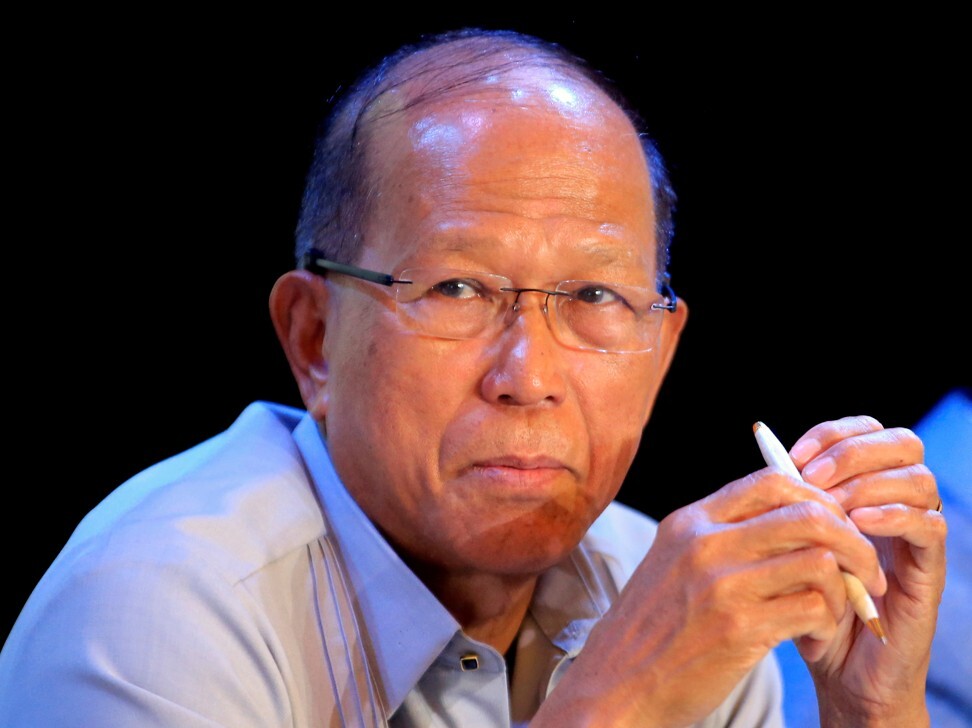
The administration fumbled several opportunities to address the pandemic early on: it failed to restrict travel from China, particularly Wuhan; it did not stockpile testing kits immediately; and it also failed to implement an efficient contact-tracing system. In March, Duterte said he wouldn’t ban or restrict travel from China to the Philippines because that would be “xenophobia” and “an utter disrespect to a human being”.
Duterte ended up having to put Metro Manila, as well as most of the island of Luzon, on a strict quarantine. For 78 days from March 16, people weren’t allowed to leave their houses, nearly all transport was stopped and businesses were closed. Even after the lockdown was lifted, the capital has remained in “general quarantine”, with movement restricted and many businesses shuttered.
The lockdown has been a dagger stabbed through the country’s economic heart. Metro Manila and nearby regions account for most of the country’s output. Nicholas Mapa, senior economist covering the Philippine market for ING Bank, said: “Covid-19 knocked out the country’s most integral growth engine – household consumption – by forcing everybody indoors.”
He said “the job losses and evaporation of consumer confidence sapped business confidence as well, leading to a free fall in capital formation or investment outlays”.
Francis Lim, president of the Management Association of the Philippines, estimated that each day of the lockdown cost the economy US$25 million. “Until we inoculate at least 80 per cent of our people, we would be hard put in getting back to near normal,” he told ABS-CBN online.
But Salvana, of the Department of Health Technical Advisory Group, said the early lockdown “saved tens of thousands of lives and preserved our health care system. Overall, I think we did OK.”
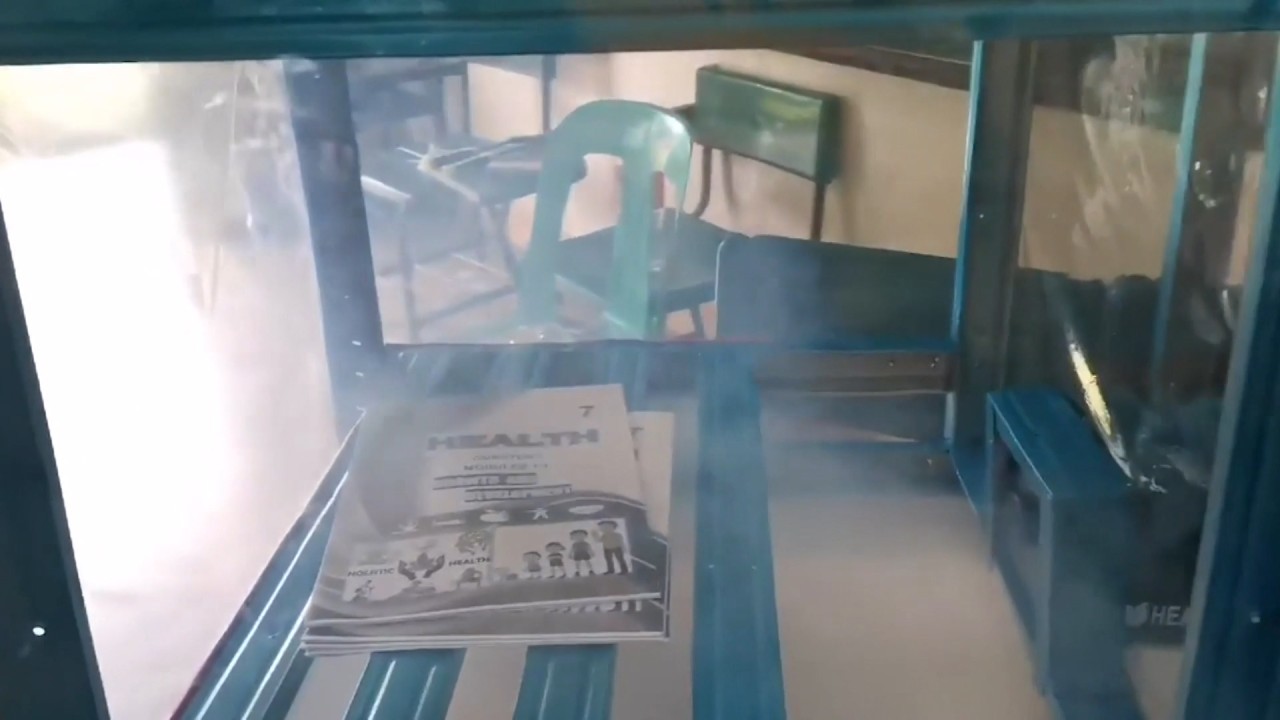
01:21
Filipino teachers invent book disinfection device to help protect pupils and staff from Covid-19
The multiple quarantines haven’t just taken an economic toll: fatigue and impatience are starting to set in. During the traditional Christmas holiday, people disregarded appeals to restrict movement and observe social distancing and went shopping. Photos from various media outlets showed the streets of the shopping district of Divisoria in Manila packed with people shoulder to shoulder while its mayor was on vacation.
Duterte’s own personal leadership has been less than inspiring. One of his particularly noteworthy pieces of advice was for people to soak their masks in petrol or diesel; another time he ranted at frontline doctors, accusing them of trying to overthrow the government. He also promised that things would be over by December.
Now, the country faces the arrival of a new year with the virus still infecting and killing people, the economy cratered and government efforts still in need of improvement. This was recently shown on Tuesday, when officials apparently could not agree on banning travellers from 20 countries. The list went up on the airport’s Facebook page, then was taken down, then put back up again within a few hours.
Even Salvana said the government still needs “improvement in communication and dissemination of constantly evolving guidelines.”